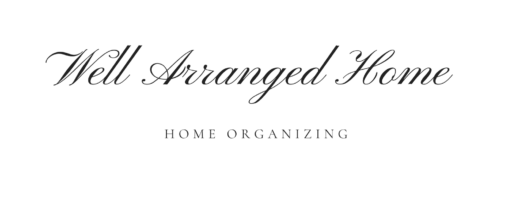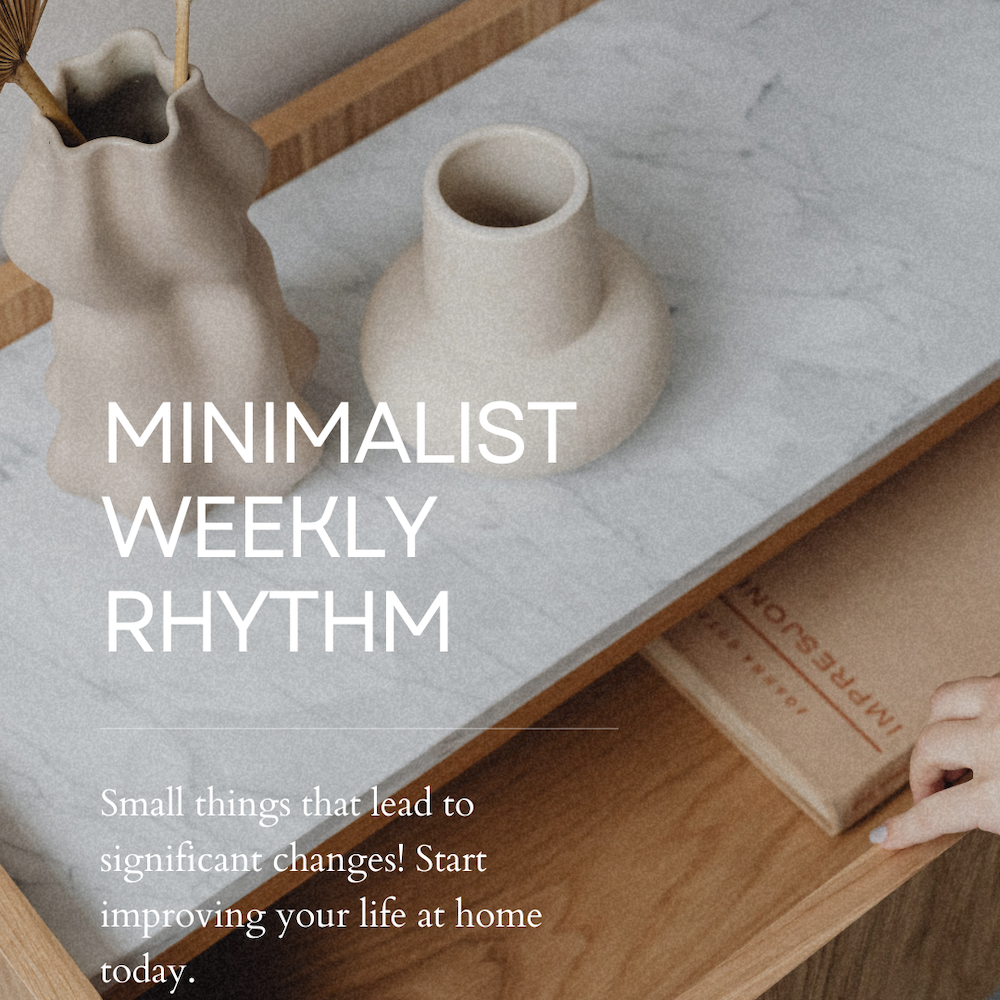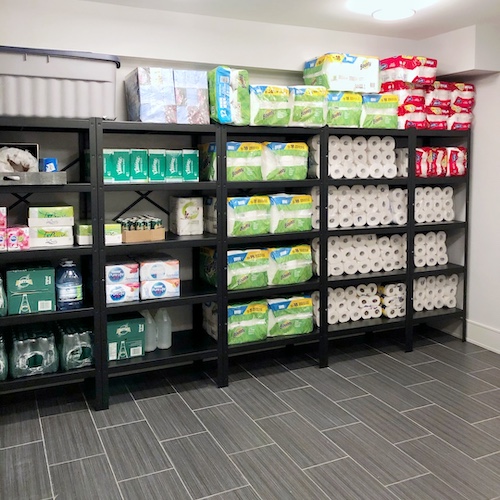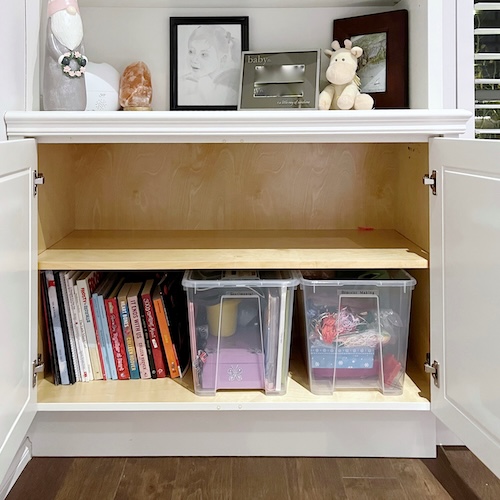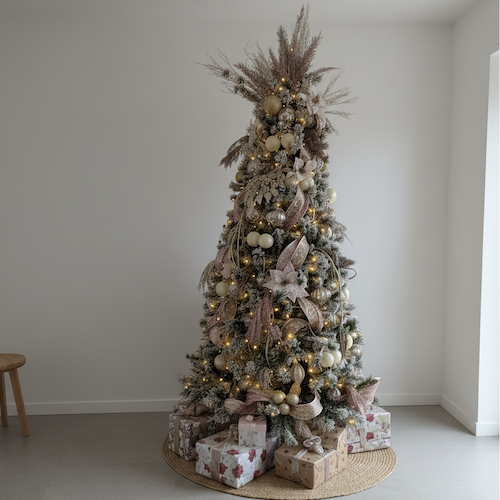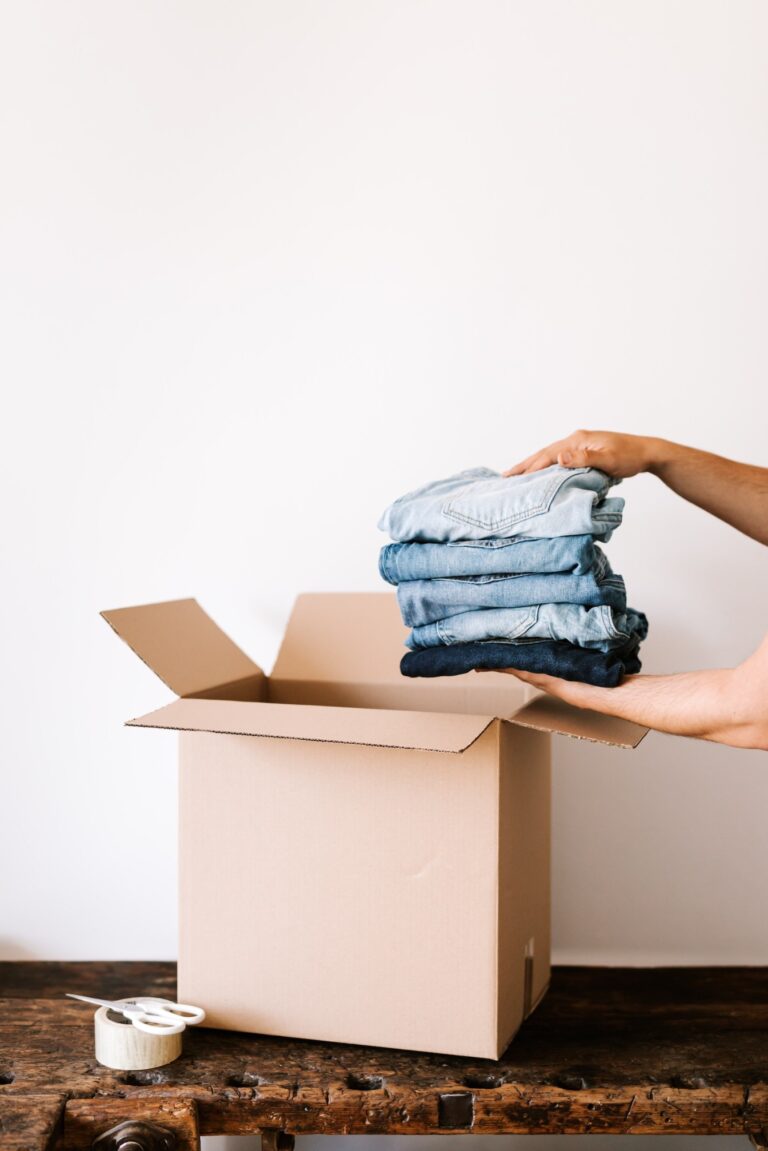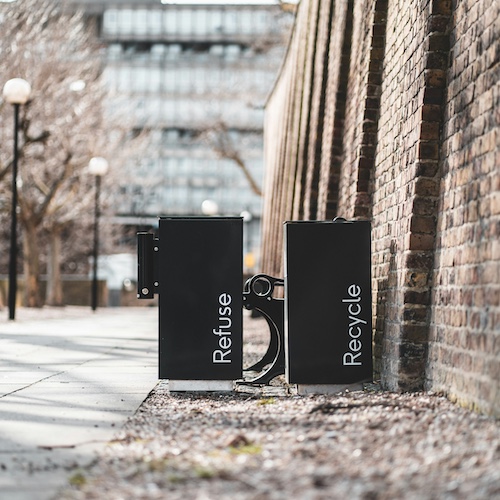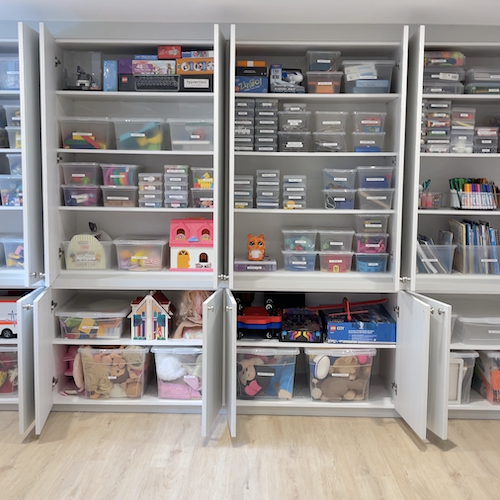I was lucky, my journey into minimalism started early, back when it was trendy and everyone was talking about capsule wardrobes, decluttering challenges, and letting go of things that didn’t spark joy.
At the time, I had just moved to Canada with one suitcase. That was it. I didn’t have to declutter or make any hard decisions—I simply didn’t own much. And because I was often moving between provinces and cities, still figuring out where I wanted to settle, the idea of accumulating things just didn’t appeal to me. Not shopping felt easy and natural.
Fast forward ten years, I eventually settled in the beautiful city of Calgary and became a homeowner. I finally had space and, of course, I began to fill it.
At first, it felt exciting. I wanted to make this home feel complete, layered, and personal. But before long, life started to feel a lot more complicated. There was more to manage, more to tidy, more to organize. Every new item needed a place to live, and my weekends became filled with cleaning, rearranging, and trying to stay on top of it all.
As a professional organizer, you can imagine how frustrating that felt. I like my home to be calm and functional, but keeping up with everything I’d brought in was draining.
That was when I decided to return to minimalism. Not as a trend, but as a way to simplify my day-to-day life. I didn’t want to do another big purge. I wanted a rhythm, something steady I could come back to whenever things started to feel heavy again.
This weekly minimalist routine helped me reset, refocus, and reclaim my time and space. And I hope it does the same for you.
Monday: Mindful Start
Review your calendar and cancel what’s not essential.
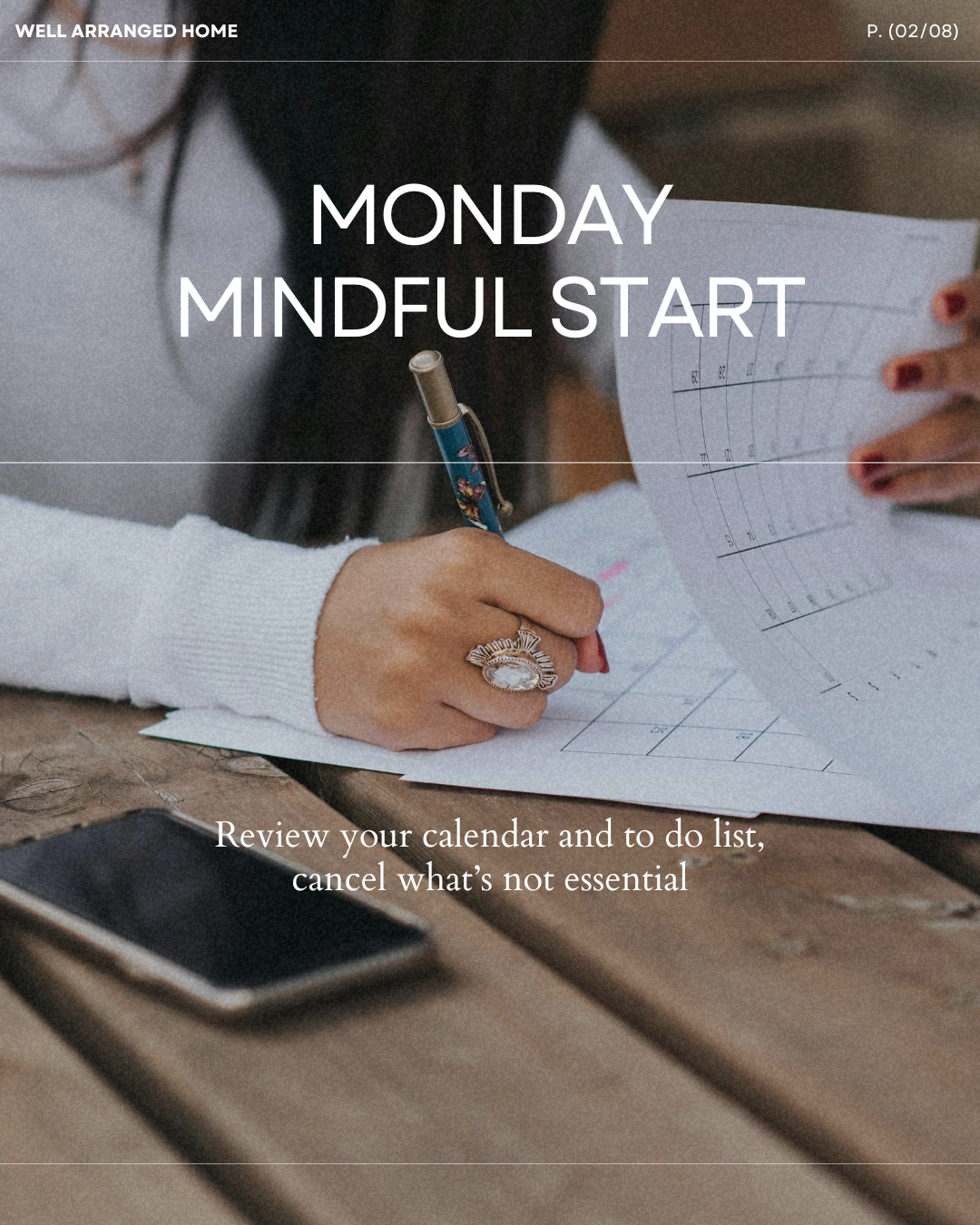
One of the easiest ways to bring minimalism into your life is to stop overcommitting. Protecting time and space in your calendar is just as important as clearing a cluttered shelf. Look at what’s coming up and ask yourself what can be removed and simplified.
Tips for your minimalist routine:
- Review your calendar for the next 7 days.
- Cancel one thing that isn’t necessary.
- Block off time just for yourself.
Less scheduled = more space for rest, reflection, or joy.
Tuesday: Tidy 20
Spend 20 minutes decluttering a small area.
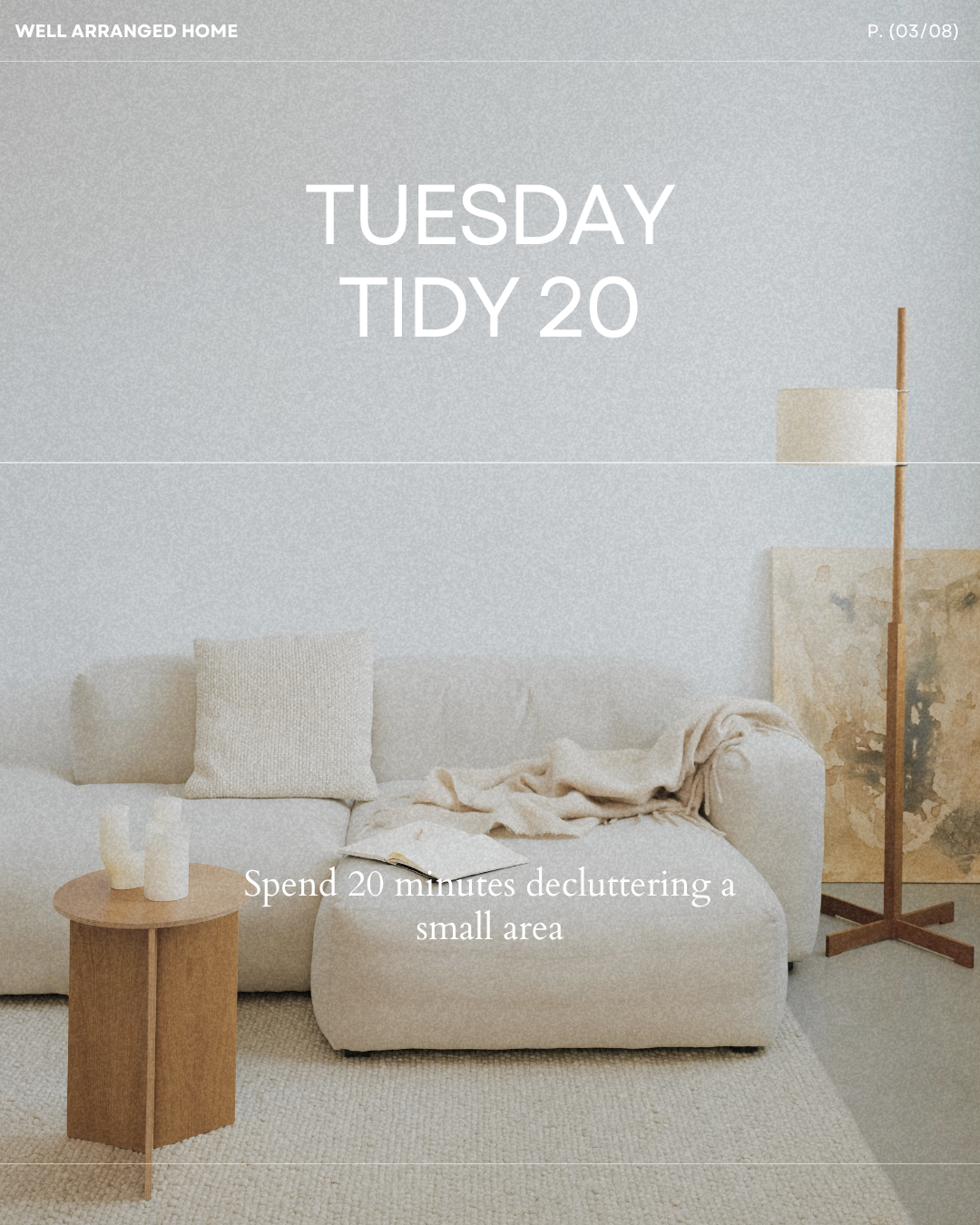
Clutter doesn’t usually pile up all at once, and it doesn’t need to be cleared that way either. The idea here is simple – just spend 20 minutes tidying or decluttering one small area.
It could be a drawer, your bedside table, the junk bowl by the door, or even the passenger seat of your car. The key is to keep it manageable so you don’t get overwhelmed.
Minimalist routine tip:
- Set a timer for 20 minutes.
- Choose one drawer, shelf, or surface.
- Use 3 piles: Keep, Donate, Toss.
- Be honest with what actually serves you.
You’ll build momentum without burnout. Keep a donation bag or box somewhere accessible. When it’s full, it goes to a donation centre nearby.
Wednesday: No-Spend Day
Pause all purchases and enjoy what you already have.
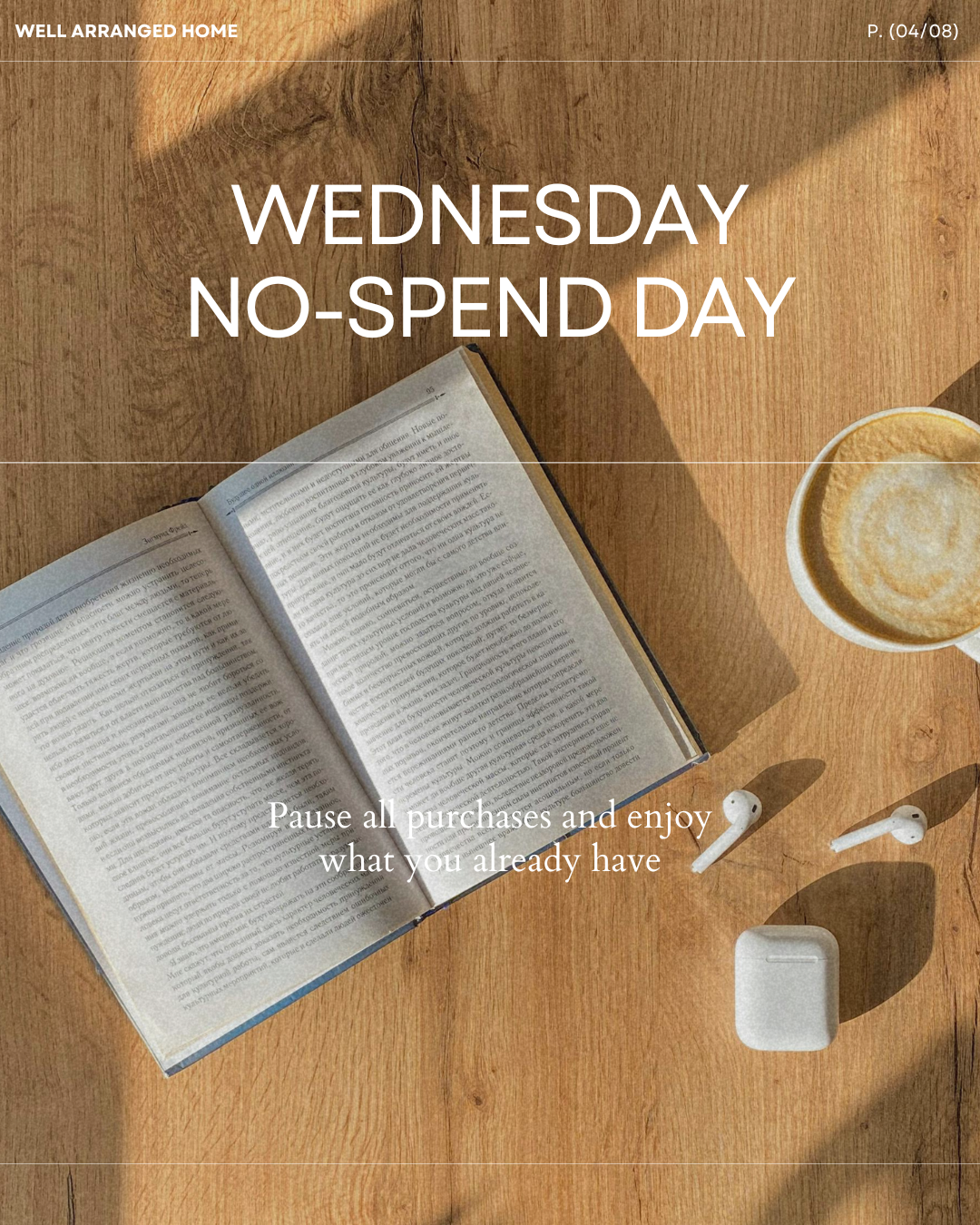
Minimalism isn’t just about what you own, it’s about your relationship with consumption. A no-spend day helps you pause the cycle and appreciate the enough you already have.
Try this:
- Plan your meals from what’s already in your fridge or pantry.
- Skip the online browsing or “just checking” shopping apps.
- Notice how often you reach to spend, and why.
Minimalist routines encourage mindful spending, and this small pause builds long-term awareness.
Thursday: Digital Detox
Clear 10 emails, unsubscribe from 3 newsletters, and delete unused apps.
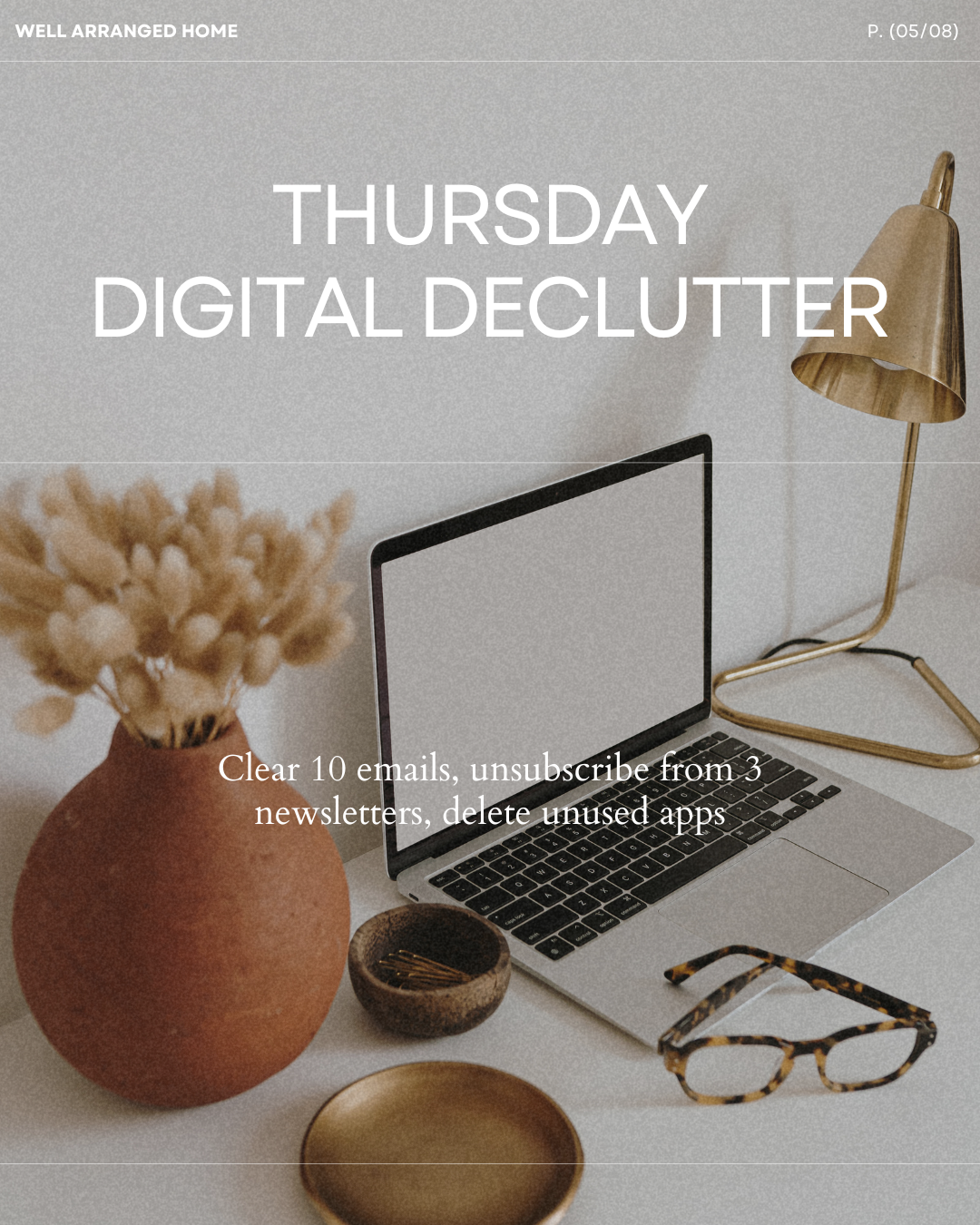
Not a full-on tech cleanse, just a little digital declutter. These small actions can have a big impact on how you feel.
Simple steps:
- Clear 10 low-value emails from your inbox.
- Unsubscribe from newsletters that don’t spark interest anymore.
- Delete apps you haven’t opened in weeks.
Want to go further? Move social apps off your home screen and check in only at set times.
Friday: Edit
Let go of 3 physical items you don’t need.
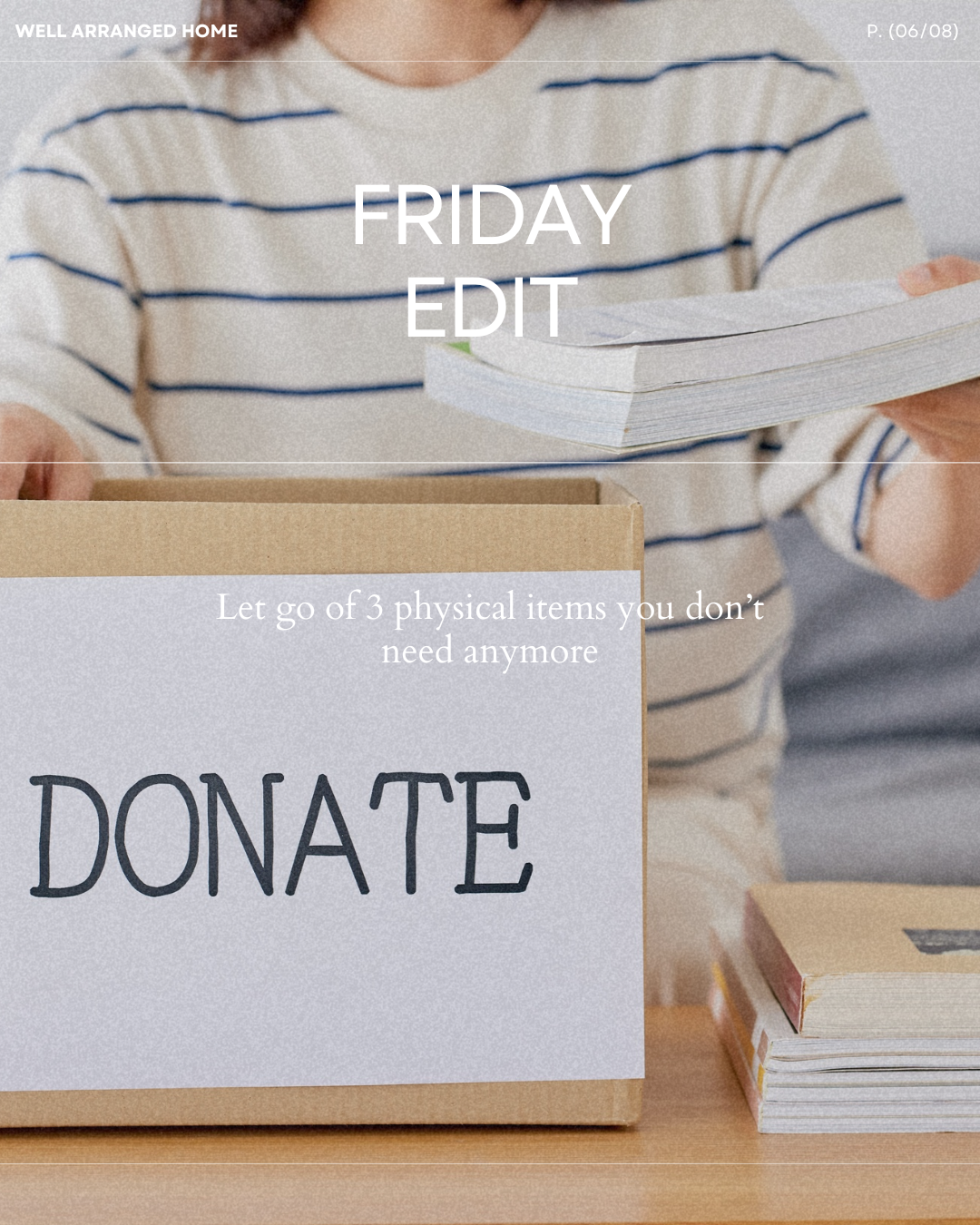
Not because you’re trying to hit a certain number, but because letting go regularly keeps things flowing. Minimalism isn’t about doing a huge purge once a year. It’s about building in small moments of release, so your home doesn’t fill up faster than you realize.
Try this:
- Choose one room or area to scan.
- Pick 3 things you haven’t used, worn, or loved in the past year.
- Place them in a donation box.
You can also keep a “donate basket” in a closet and drop items in throughout the week.
Saturday: Simplify Home
Instead of trying to tackle everything, just choose one task or area to streamline.
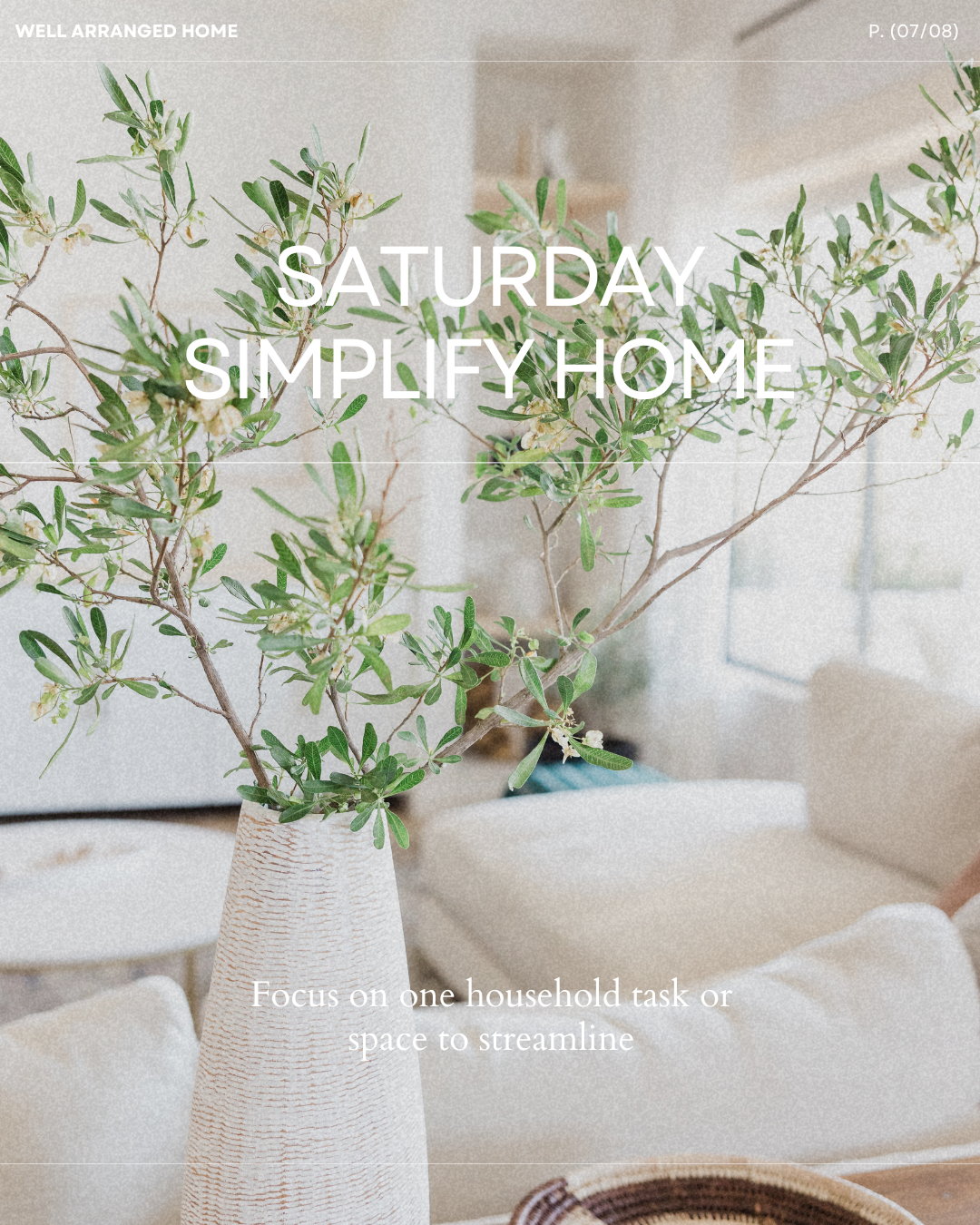
Look for something that’s been bugging you in the background. Pick something small and make it work better for your life.
Ideas:
- Simplify your entryway setup: shoes, keys, bags.
- Reorganize your kitchen sink area or coffee station.
- Toss expired pantry goods or clean out one shelf.
Ask yourself: What space feels heavier than it should? That’s your Saturday project.
Sunday: Rest
This is the day to do less, not more.
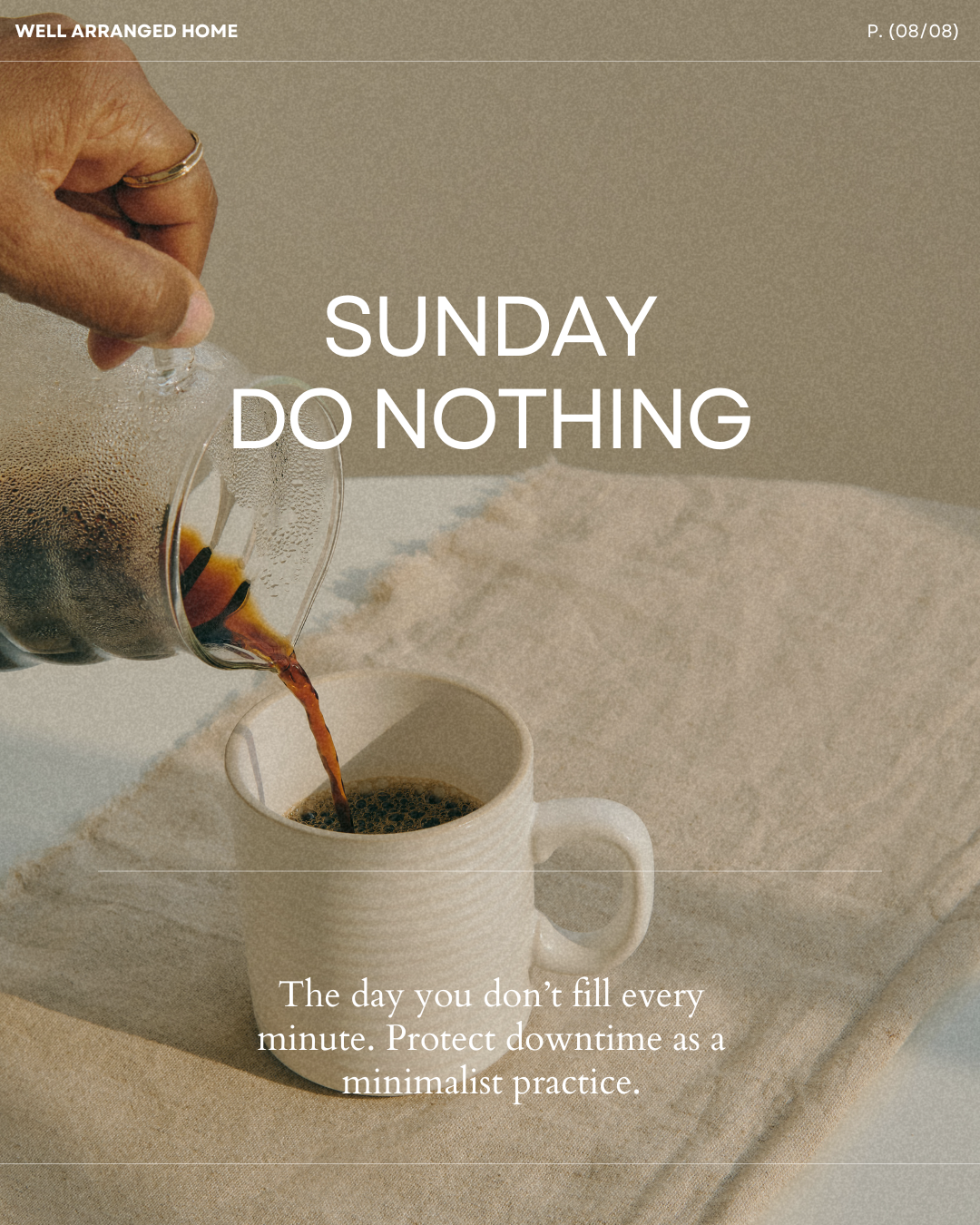
Resist the urge to get ahead. Instead, rest, take a slow walk, drink your coffee slowly, let your mind wander. Protect this time. Guard it. White space is not wasted space, it’s where your clarity lives.
How to use your Sunday:
- Don’t schedule anything. Let your day be open.
- Resist the urge to “get ahead.”
- Go outside, nap, journal, or simply do nothing.
This pause is just as powerful as any decluttering session.
Why a Weekly Minimalist Routine Works
This rhythm isn’t about checking boxes. It’s about building small habits that support a calmer, more intentional life. You’re creating space for what matters most — without the stress of a major life overhaul.
Benefits of this minimalist routine:
- Reduced decision fatigue
- More clarity and focus
- Less physical and mental clutter
- More intentional shopping and spending
- A sense of control over your time and energy
- Sustainable, low-effort habits
Frequently Asked Questions
Is this minimalist routine for beginners?
Yes, it’s designed to be approachable. You can do each task in 15–30 minutes or adapt it to your lifestyle.
What if I miss a day?
No big deal. Just pick up where you left off. The goal is consistency, not perfection.
Can I repeat the routine every week?
Absolutely. In fact, that’s where the real impact happens. Over time, these small actions compound into major life shifts.
Decluttered and now don’t know where to drop it off? Check out our guide on Donations in Calgary or our guide for Donations in Toronto.
